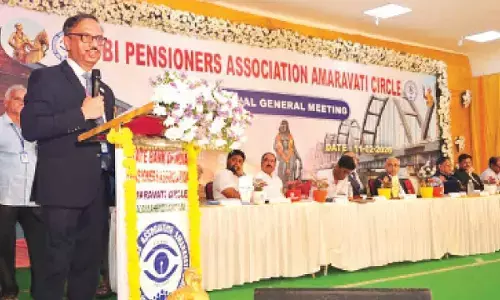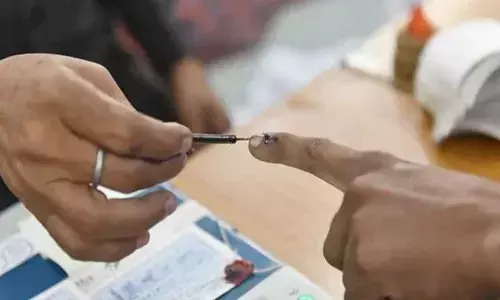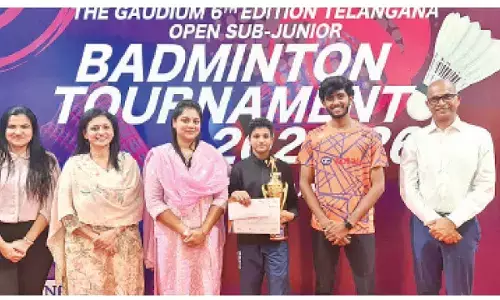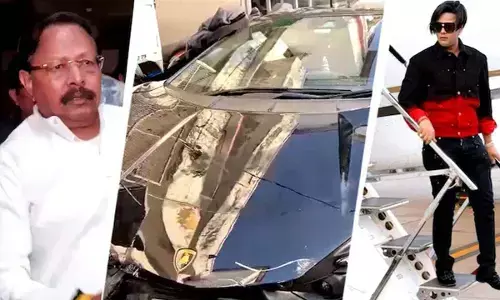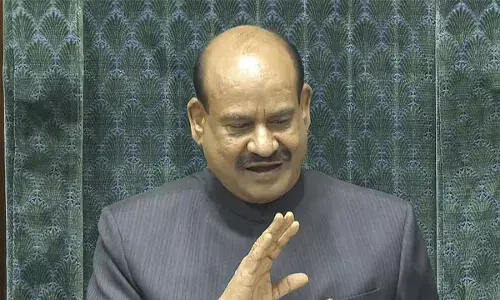Startups to have access to science and technology infrastructure soon

Startups to have access to science and technology infrastructure soon
Startups and industries will soon have access to equipment and science and technology infrastructure in different institutions, Universities, and Colleges spread all over the country to carry out experiments and tests they require for their Research and Development.
Startups and industries will soon have access to equipment and science and technology infrastructure in different institutions, Universities, and Colleges spread all over the country to carry out experiments and tests they require for their Research and Development.
The Science and Technology Ministry on Saturday said, restructuring will help them carry out experiments and tests required for their Research and Development, technology and product development.
The Department of Science and Technology is restructuring its FIST (Fund for Improvement of Science and Technology Infrastructure in Universities and Higher Educational institutions) programme under which it supports scaling up of the network of infrastructural facilities for teaching and research in Universities and higher educational institutions.
The FIST programme will now be reinvented to FIST 2.0 to orient it towards the goal of Atmanirbhar Bharat to create Research and Development infrastructure not only for experimental work but also to cater to theoretical work, ideas and entrepreneurship, said Sanjay Dhande, the chairperson of the FIST Advisory Board.
This will create a new paradigm for FIST 2.0, he added.
"The Department of Science and Technology (DST) is restructuring its FIST programme under which it supports scaling up of the network of infrastructural facilities for teaching and research in universities and higher educational institutions to cater to high-end S&T infrastructural requirements of start-ups and industries," the department said in a statement.
It will also link up programmes like FIST, Sophisticated Analytical Instrument Facilities (SAIF), and Sophisticated Analytical & Technical Help Institutes (SATHI), all of which are designed to set up science and technology infrastructure centres at department, university, regional and national level, it said.
While on an average of about 8,500 researchers use these facilities in centres spread all over India, industries and start-ups involved in research and development, technology and product development have to carry out most high-end experiments and testing of technologies from laboratories outside India.
This is because they prefer not to buy equipment and infrastructure which are of limited usage to them and they cannot access most of the high-end science and technology infrastructure set up in the universities and institutions, the statement said.
PTI in its report said, Till 2019, about 2,910 S&T departments and post-graduate colleges have been supported with a total investment of about Rs 2,970 crore under FIST. In SAIF, 15 centres have been funded while SATHI has three centres running and more to be supported under the research and development infrastructure division.
"The S&T infrastructure network would now reach out to more beneficiaries and focus on alignment with some of the National Missions and Sustainable Development Goals as well as towards technology translational research promoting different start-ups and industries.
"The restructuring would also entail a shift from a discipline (tool-centric) based research to interdisciplinary problem solution-centric research," the statement said.
This would not only encourage Indian-origin researchers in academic institutes and research organisations across the world and resident counterparts to explore collaborative joint ventures to strengthen the science and technology base in India for global development but would also enrol industry in research and development endeavour to bring about direct benefits for the society, it added.
Ashutosh Sharma, the secretary of DST said, "There is a huge investment in the creation of science and technology infrastructure in the country running into tens of thousands of crore of rupees every year, which will bring manifold value with effective and transparent sharing practices with the ease of use."
"Because of this, the DST is also formulating a policy on the best practices for the creation, effective use, sharing, maintenance, skill generation, and disposal of science and technology infrastructure," he added.




